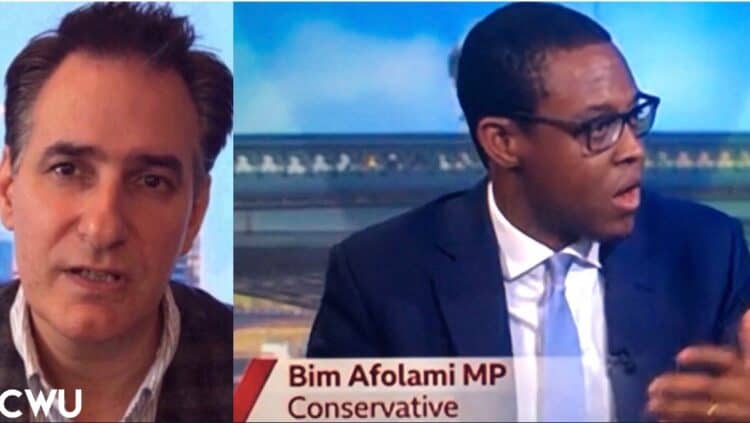“Tory MP’s are today doubling down on the Governments claim that giving our teachers inflation busting pay rises will embed higher inflation or even accelerate it. By now even Larry the cat knows it’s boll**!” says lawyer and activist Peter Stefanovic.
Are Tory MP’s right? Would a pay rise for public sector workers affect inflation?
In recent years, the UK public sector has seen calls for pay rises in response to years of pay freezes and austerity measures. However, Tory politicians have expressed concern that these pay rises could contribute to inflation. In this article, we will examine why this concern is unfounded and why public sector pay rises are unlikely to affect inflation in the UK.
First, it is important to understand what inflation is and how it is measured. Inflation is the rate at which the general level of prices for goods and services is rising, and it is measured by tracking the prices of a basket of goods and services over time. The most commonly used measure of inflation in the UK is the Consumer Price Index (CPI), which is based on a basket of goods and services that are representative of household spending patterns.
One of the factors that can contribute to inflation is an increase in wages. This is because if workers are paid more, they may have more money to spend on goods and services, which can drive up demand and therefore prices. However, this is only one factor that can contribute to inflation, and it is not the only factor that policymakers need to consider when making decisions about interest rates and other macroeconomic policies.
When it comes to public sector pay rises specifically, there are several reasons why they are unlikely to have a significant impact on inflation in the UK. Firstly, the public sector employs around 5.5 million people in the UK, which is a relatively small proportion of the overall workforce. Therefore, even if all public sector workers received a pay rise, the overall impact on the labour market and inflation would be relatively small.
Secondly, the public sector pay bill is funded by the government, which means that any increase in public sector wages is not directly funded by private sector businesses or consumers. This means that the impact of public sector pay rises on the wider economy is likely to be limited.
Thirdly, public sector workers are not typically the highest earners in society. According to the Office for National Statistics, the median weekly earnings for full-time employees in the public sector in the UK was £565 in 2020, compared to £600 in the private sector. This means that even if all public sector workers received a pay rise, the overall impact on consumer spending and inflation would be relatively small.
Finally, it is worth noting that the Bank of England and other policymakers are well aware of the potential impact of wage increases on inflation, and they take this into account when making decisions about interest rates and other macroeconomic policies. This means that any potential impact of public sector pay rises on inflation is likely to be carefully monitored and managed.
Public sector pay rises are unlikely to have a significant impact on inflation in the UK.
You may also like: Watch: Rishi Sunak’s cringe football video as ‘pattern of behaviour’ emerges over wife’s interests







